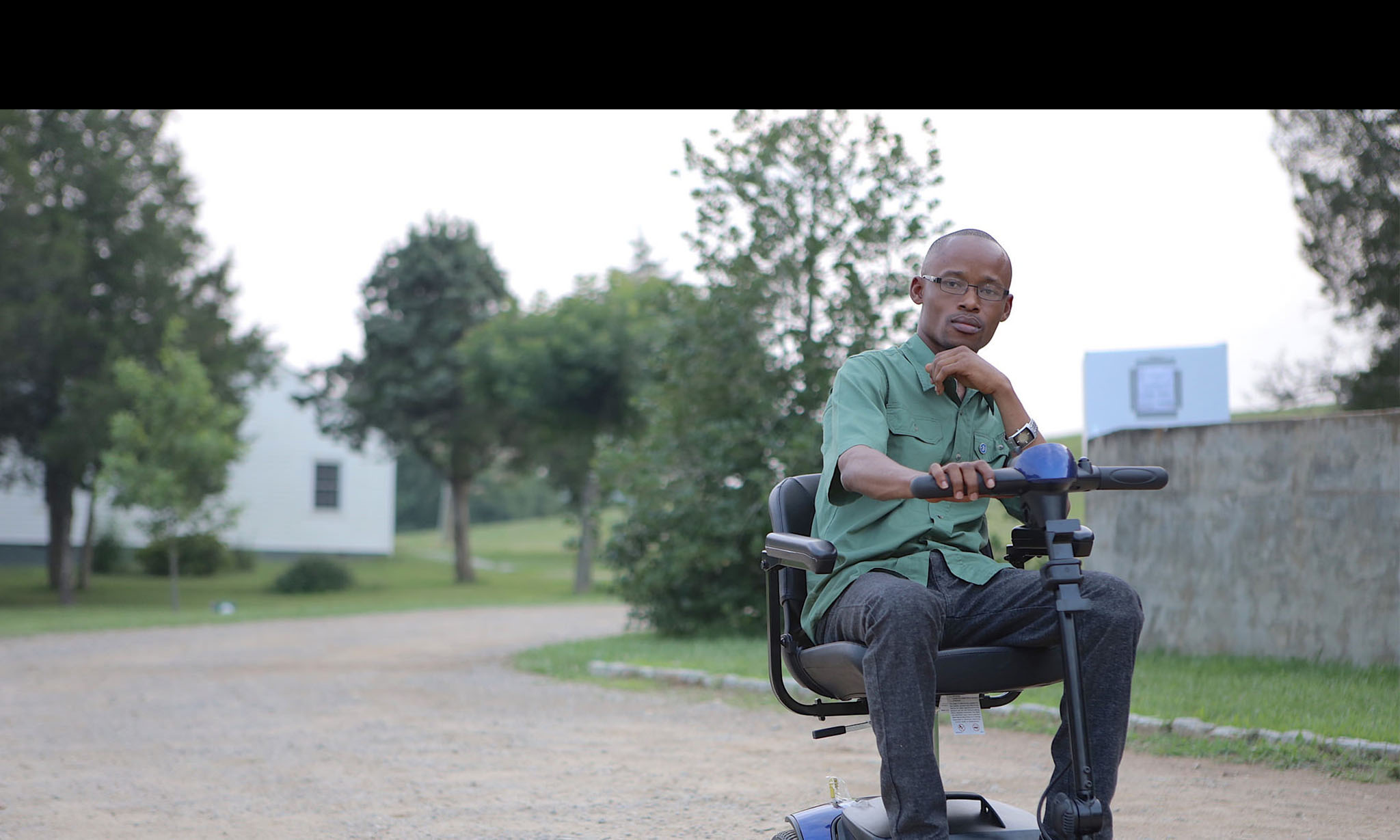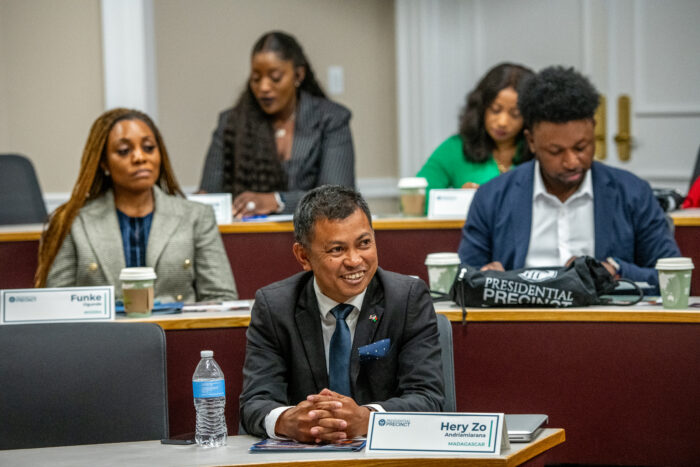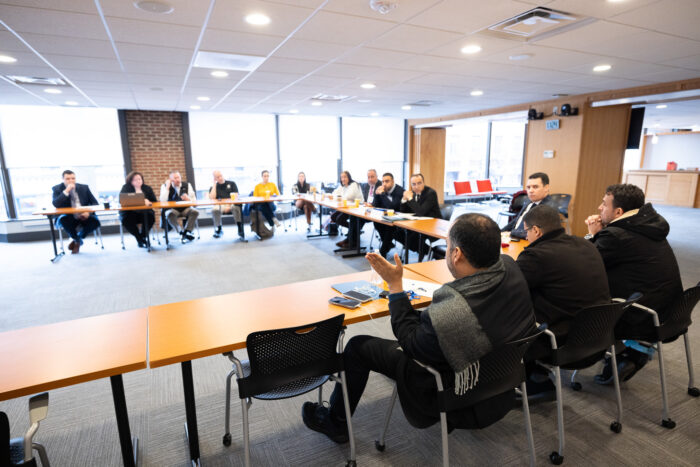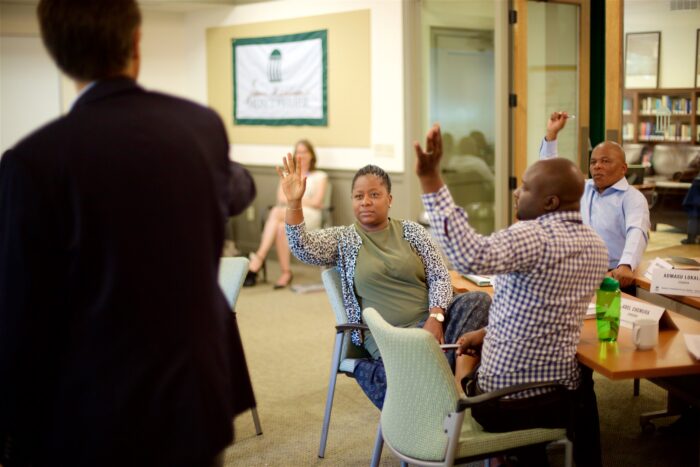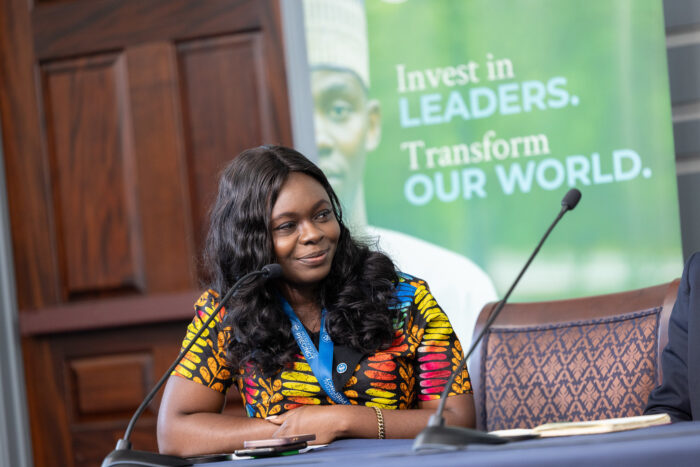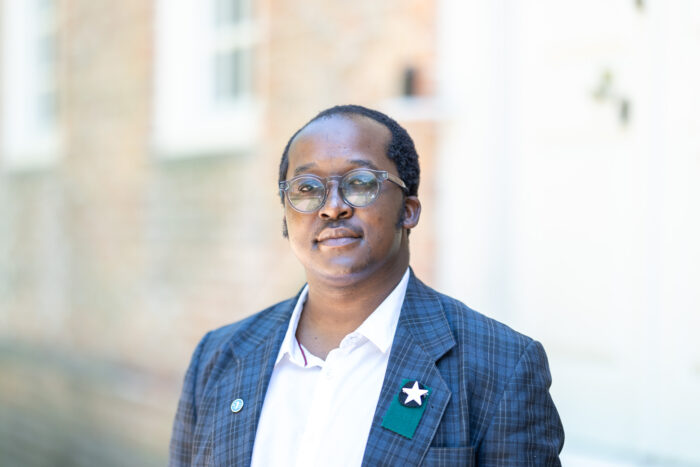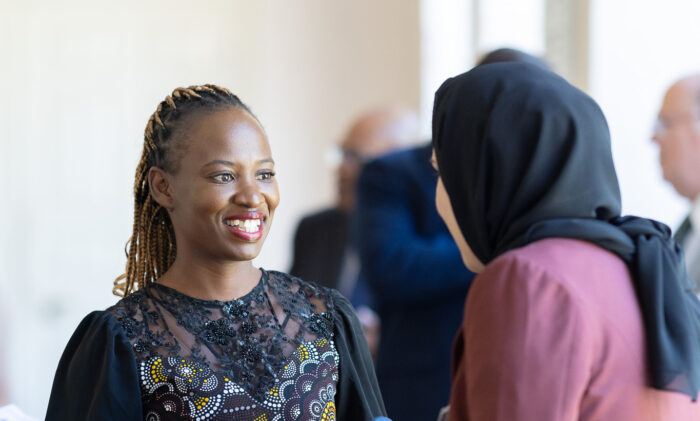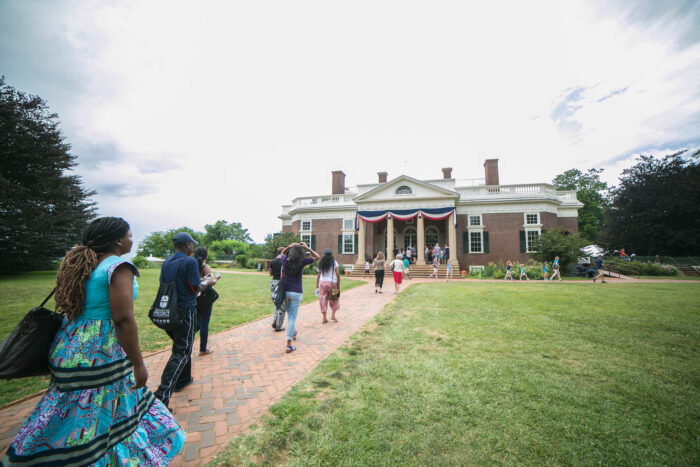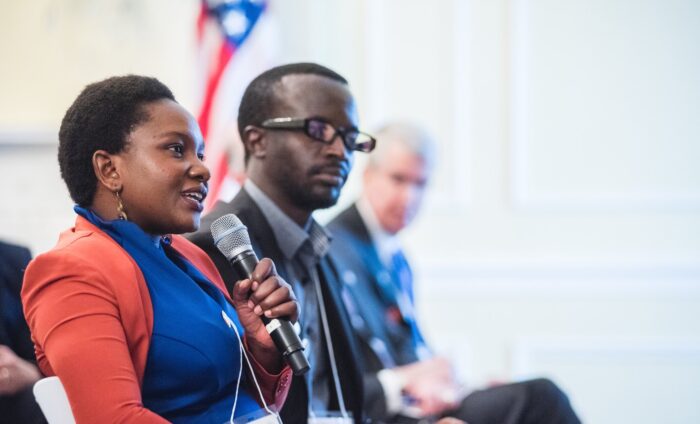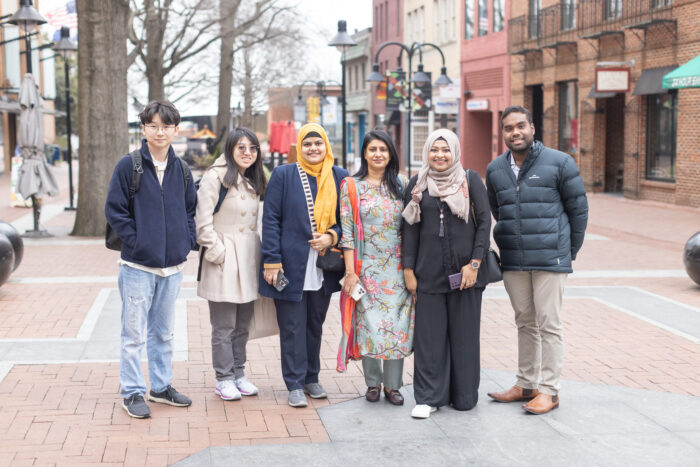From Sierra Leone: Precinct YALI Fellow Promotes Human Rights, Judicial Accountability, and Good Governance
Originally published by African Development Successes
Aruna Kallon was born in southeastern Sierra Leone in 1985 to modest and loving parents, Theresa Hawa Kallon and Maada John Aruna Kallon. The fourth of six children, he grew up in Kenema, Sierra Leone’s third largest city, where his father lived for most of his life and until he passed away in 2006. Aruna obtained his junior secondary education at the Islamic Secondary School in Kenema. He went on to excel academically and as a leader at the Government Secondary School, also in Kenema. Mr. Kallon became Assistant Senior Prefect for the 2003-2004 academic year and completed his West African Senior School Certificate Examinations as Best Student in the Eastern Province and ranked fourth on the national ‘Top-Ten’ list. He proceeded to study for a Bachelor of Arts degree in English at Fourah Bay College (FBC), University of Sierra Leone. He graduated at the top of his class in 2009 with a First-Class Bachelor of Arts degree with Honors in English. Impressively Mr. Kallon also holds a Bachelor of Laws (LLB) with Honors from Fourah Bay College, a record-breaking achievement for a FBC student.
While studying for his two degrees between 2005 and 2014, Mr. Kallon held many positions of responsibility on the FBC campus, including: President of the Kenema District Students’ Association, Secretary-General of the Human Rights Clinic, President of the Law Society, and Chairman for the Coalition of Academic and Religious Societies. In October 2009 while still awaiting the official graduation ceremony to be held in December of that year, Aruna Kallon was nominated by the Head of the Language Studies Department at FBC for the position of Temporary Teaching Assistant (TTA). He immediately began serving as a TTA, and in January 2010, was officially appointed to the position. He currently serves as a lecturer at FBC.
A staunch human rights defender and an advocate for equality, Aruna made considerable contributions to college-based human rights work, while serving in the Fourah Bay College Human Rights Clinic in the twin roles of Secretary-General of the Clinic and Editor-In-Chief of the Clinic’s official newsletter, The Mirror.
In 2013, Mr. Kallon volunteered for three months at the Centre for Accountability and Rule of Law(CARL), an independent, not-for-profit organization committed to promoting human rights, accountability and the rule of law in Sierra Leone. Here, his task included monitoring institutions of justice and accountability, including the courts, the national police and other national human rights institutions. Later that year, he became the organization’s Editor/Communications Consultant. He now leads all CARL’s monthly newsletter compilation and publication efforts and, among other things, helps in developing the organization’s short term and long term communication strategy and advocacy objectives.
Since he joined CARL, Aruna Kallon has been campaigning for accountability of public officials and for perpetrators of sexual and gender-based violence. He has also been advocating for the rights of persons facing trial in the courts of Sierra Leone, including 14 people, many of them part of the Republic of Sierra Leone Armed Forces, who were held in detention by the state for alleged mutiny. Through sustained media campaigns, including press releases, articles and reports, Mr. Kallon and his colleagues at CARL kept pressure on the state to speedily try the prisoners who were being held for months without charges. By August 2015, all 14 of the prisoners were acquitted and discharged for want of sufficient evidence.
In March 2014, while in his final year of studying Law at FBC, Aruna Kallon did Sierra Leone proud when he represented the university and won the Best Speaker for a Session Award. The win put the University in Second Place in a debate at the 4th Biennial Regional Summit on Sustainable Development and Human Security, in Abeokuta, Nigeria. It was the first time in many years that Sierra Leone won a major international trophy in any field. This event featured twenty-three universities in Africa, and was organized by the UNESCO Institute for African Culture and International Understanding in partnership with the Olusegun Obasanjo Presidential Library’s Center for Human Security.
Outside his professional life, Aruna also volunteers his time for youth motivation and mentoring. He is a founding member of Productivity Plus, an organization which uses motivational seminars and youth camps to help young people overcome barriers in their lives that make the realization of their dreams seem impossible. During the Ebola epidemic, he and his colleagues in Productivity Plusorganized a series of seminars across the country, including one on the theme: “Take Your Dream beyond the Effects of Ebola.” The seminar was used to share effective remedial strategies that secondary school and university students could adopt to remain abreast with their studies, even when schools remained closed.
In June 2015, Aruna Kallon was selected alongside five other young Sierra Leoneans to participate in the 2015 Mandela Washington Fellowship for Young African Leaders, the flagship program of President Barack Obama’s Young African Leaders Initiative (YALI). While in the USA, Mr. Kallon had the opportunity to acquire academic training in Civic Leadership in the Presidential Precinct, a consortium of the University of Virginia and the College of William and Mary. He, alongside 499 other young African leaders, also took part in a Presidential Summit with President Obama in Washington. Mr. Kallon believes that the Summit gave him and other young Africans some needed encouragement. It demonstrated to them that their generation is trusted and is viewed as able to bring about the change that the continent needs to move forward with economic growth and democratic good governance.
Based on the literature on international development and personal success, why has Mr. Aruna Kallon been so successful in his undertakings?
Some key characteristics come to mind:
Mr. Kallon CARES DEEPLY ABOUT OTHERS’ WELL BEING and he works to protect their rights. The activities he has undertaken and positions he has attained reflect his effective SERVANT LEADERSHIP.
Mr. Kallon STRIVES FOR EXCELLENCE: He was the top of his class and among the top in his country in his exam scores. As a Mandela Washington Fellow he opted to not only complete the standard six-week program, but to add six weeks of a Professional Development Experience (PDE) after the Presidential Summit. Only 20 percent of the highly accomplished group of Fellows was invited to do so. As part of his PDE, Mr. Kallon interned at the National Endowment for Democracy (NED), in Washington D.C., where he advanced his research, fundraising, advocacy, and online communications skills. Mr. Kallon intends to use these skills to contribute to building civil society capacity, increasing citizen participation, and promoting transparency and accountability in Sierra Leone’s Ebola Recovery process and in governance more generally.

